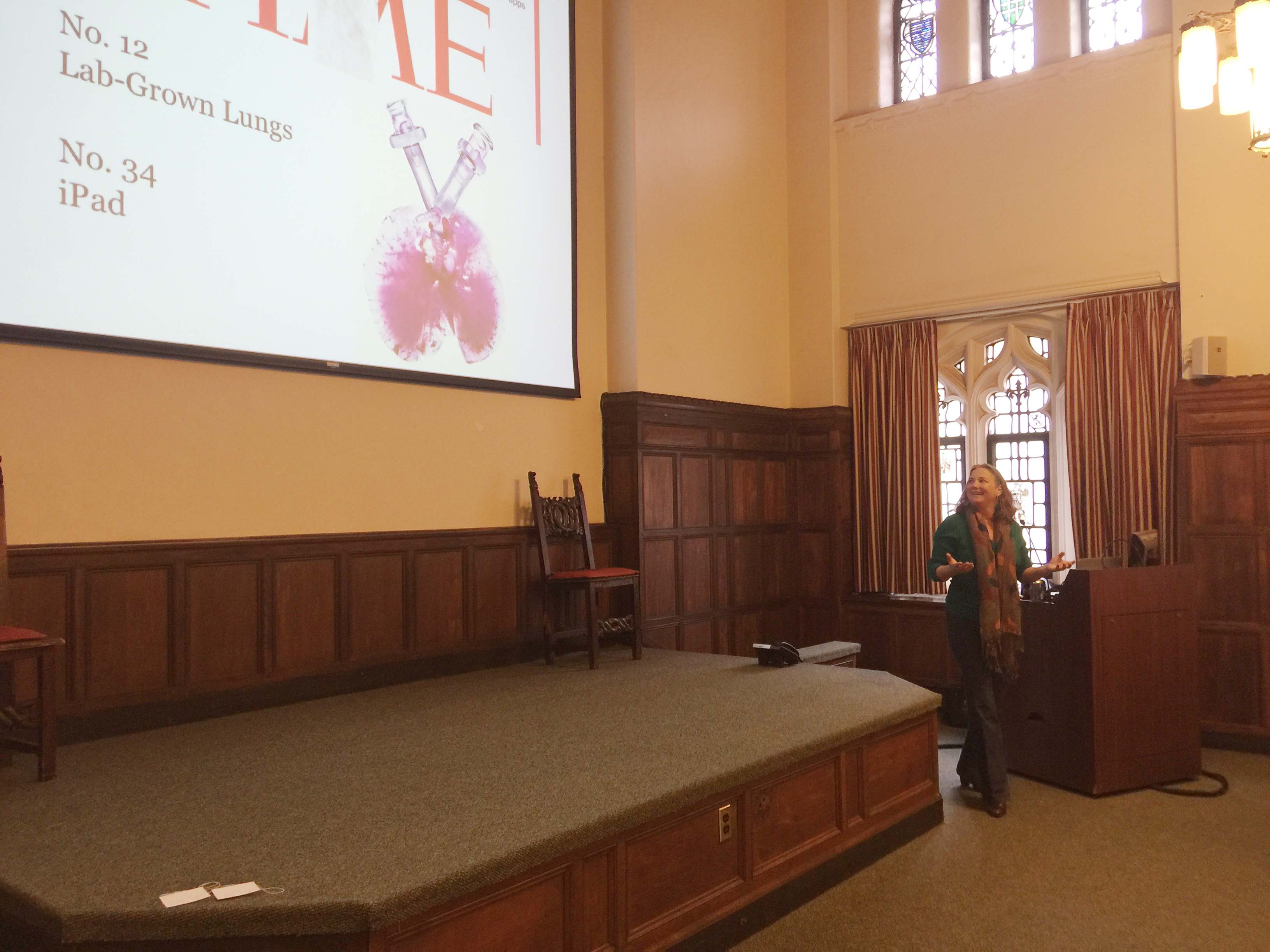
The Yale Scientific Magazine and the Office of Career Strategy co-hosted Yale’s first biotechnology recruitment fair on Friday, featuring five biotechnology firms and six Yale laboratories looking for interested Yale applicants for either postgraduate work or summer internships.
The event took place in Sterling Memorial Library and had 150 attendees ranging from freshmen to postdoctoral fellows. Yale Scientific Operations Manager and event co-host Chunyang Ding ’19 said the wide range of attendees was indicative of the need on campus for biotechnology resources which were previously underrepresented.
“We believe that the goal of this biotech event aligns with the goals of the Yale Scientific -— to bring the scientific accomplishments and opportunities of Yale to its students in an honest and accessible manner,” Ding said. “We envision an even larger biotech recruiting event to come [in the fall].”
OCS provided details on logistics and financial support as well as overall aid in developing the recruitment event, Ding added. Outside of this, the Yale Scientific Business and Outreach team contacted companies and laboratories as well as publicized the event.
The Yale Scientific hopes to set up a long-term relationship with OCS, Ding said. This relationship will allow for similar events on a larger scale and more frequent basis, especially as New Haven’s prominence in the biotechnology industry develops.
“The biotech scene in New Haven has really been growing,” said Yale Scientific Editor-in-Chief Lionel Jin ’18, staff reporter for the News. “Alexion is moving its operations back to New Haven, and Yale has faculty like Laura Niklason and Craig Crews [founder of the pharmaceutical company Arvinas] who have started very successful companies of their own.”
The event featured a keynote speech by Niklason, a professor of biomedical engineering who in 2004 founded Humacyte alongside Shannon Dahl and Juliana Blum. Humacyte is a biotech company that seeks to develop extracellular-matrix products -— collections of molecules secreted by cells that provide structural support to surrounding cells — which can be used to help to replace lost or damaged tissue. Ding said Niklason is one of the leading experts in growing artificial lungs.
Students who attended said the event was a helpful move to facilitate growth in the services OCS provides to students interested in biotechnology. Event attendee Eric Zhang ’18 said the fair helped him get a sense of the careers available in the pharmaceutical industry, though he said there is still much room for OCS offerings in biotechnology to improve.
“I think that the job and internship search in the biotech sector could be even better, what with the large number of startups and large companies in this region, with maybe even a centralized, dedicated job fair dedicated to these types of jobs,” Zhang said. “OCS is definitely helpful for this, but it feels strange that there’s not more of a concerted effort by Yale to capitalize on the abundance of opportunities, especially considering the biological sciences are so strong here.”
After the keynote speech, students spoke with representatives from Alexion Pharmaceuticals, Butterfly Network, Medtronic and LAM Pharmaceuticals. Jin said that Melinta Therapeutics and Genomas, two biotechnology companies, were planning on coming as well but had to cancel last-minute due to scheduling and staffing constraints.
“Up through the end of the event, there were still students speaking with the business representatives, learning about their companies’ mission and exchanging contact details,” Ding said. “Alexion even had to call in backup representatives to take care of the ever-growing crowd of students.”
Alexion Pharmaceuticals is an international, publicly traded biotechnology company that recently moved its headquarters back to New Haven, which it had left for Cheshire, Connecticut in 2000. Butterfly Network, too, has a Yale connection, Ding said. The company was founded by Jonathan Rothberg GRD ’91, professor of research of genetics at the medical school.
Medtronic is the world’s largest stand-alone medical technology development company and has locations in New Haven, Ding added.
Jin said that in the future, the Yale Scientific will make it a priority to attract biotechnology companies without a Yale connection, fostering a wider range of businesses.
“In the fair that we are planning for the fall, we are thinking of bringing in a range of big pharma companies and other biotech companies from both Boston and New York, for instance Biogen and Celgene,” Jin added.
In 2015, 6.2 percent of the Yale graduating class went on to work in the medical or pharmaceutical industry according to OCS.







